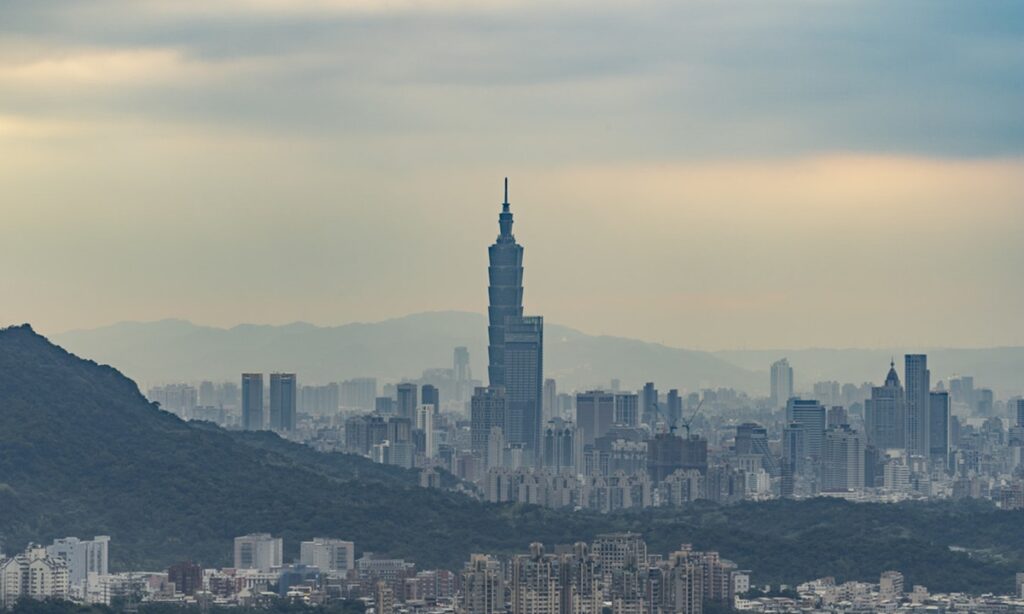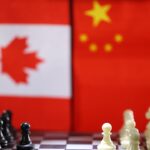‘China threat bet’ fails as public focuses on livelihood
Taiwan residents’ choices, which made the Democratic Progressive Party (DPP) lose its key places like Taipei, Taoyuan and Hsinchu in the island’s local elections, as observers see, were a loud “No” to DPP authorities’ policies on a wide range of topics related to people’s livelihoods including the chaotic COVID-19 response and the failure to rein in rising prices, and also demonstrated that Tsai Ing-wen”s “China threat bet” has backfired.
Such results proved the mainstream public opinion on the island was for peace, Chinese mainland authorities on Taiwan affairs stated on Saturday, while vowing to continue working with the Taiwan people to promote peaceful development of cross-Straits relations and firmly oppose “Taiwan independence” and external interference,
The DPP got five out of 21 posts of “city mayors” and “county chiefs” and the Kuomintang (KMT) grasped 13. In the six “special municipalities,” namely New Taipei, Taipei, Taoyuan, Taichung, Tainan and Kaohsiung, four were in the KMT’s hands while the DPP kept Tainan and Kaohsiung in the south.
The Taiwan People’s Party, founded in 2019, got Hsinchu, and the other two posts went to people without party affiliations, according to Taiwan-based media.
The election results were broadly in line with anticipations and the scenario in the 2018 local elections.
DPP’s loss of northern Taiwan, where campaign efforts were concentrated for both parties, prompted Tsai Ing-wen to resign as the DPP chair, but she will continue to serve as the regional leader until 2024, according to Reuters.
Tsai had recast the election as being more than a local vote, saying the world is watching how Taiwan island defends its democracy amid tensions with the mainland, but the strategy “failed to pay off and win public support, Reuters said.
Wang Jianmin, a senior cross-Straits expert at Minnan Normal University in East China’s Fujian Province, told the Global Times on Sunday that the DPP has lost people’s support because of its failures in handling many internal affairs concerning public livelihoods and frequent scandals violating “values” it boasted about.
Corruption, black gold politics and nepotism severely violated what the DPP had pledged to the people, Wang said, and he cited in particular the academic integrity scandal of ex-Hsinchu mayor Lin Chih-chien.
Lin’s degree and diploma were revoked by the Chung Hua University for serious plagiarism in his master’s thesis, the island’s media reported in August.
Though Lin later quit the election for Taoyuan, the scandal “severely frustrated the young generation, DPP’s traditional vote base” and the new candidate was seen to be “in same camp of Lin” and lost political integrity, Wang said.
Analysts also agreed that it was unsurprising that the DPP authorities cannot grab Taipei when they nominated Chen Shih-chung as the mayor candidate despite public disapproval of him. Chen’s performance in COVID control as regional health authority chief has irritated many.
Lin, Chen and many other DPP officials who were given no or lenient punishment for severe violations put the spotlight on DPP’s double standards, dubbed as “Green (DPP) can but you can’t,” which ordinary people resent, Wang said.
Zheng Boyu, vice president of the Beijing-based Taiwan Youth Council Beijing Association for Taiwan Enterprises, said the voting rate was quite low this year.
In the six “special municipalities,” average voting rate marked a new of 60.17 percent, a 6 percentage points drop from 2018, local media reported.
Such a phenomenon underscored that people have low faith in the DPP authorities and doubted whether the local elections can bring about positive changes to their lives, Zheng told the Global Times on Sunday.
Tsai and the DPP authorities have in many cases sacrificed the interests of ordinary people and local companies to please external forces and accumulate political capital.
The DPP authorities in February relaxed a ban on food imports from Japan’s five prefectures around the site of the 2011 Fukushima nuclear disaster. The “nuclear food,” as Taiwan residents call it, finally got approved after being banned for more than 10 years.
Despite opposition from 75 percent of the public, the “legislative body” of the DPP authorities in 2020 greenlighted the US pork with ractopamine, as they relied completely on the US to continue the “China threat bet.”
But such tricks were fruitless in local affairs-oriented elections and even backfired on DPP itself, telling from the results, Li Zhenguang, professor and deputy director at the Institute of Taiwan Studies under the Beijing Union University, told the Global Times on Sunday.
Call for peace
Zhu Fenglian, spokesperson of Taiwan Affairs Office of the State Council, said on Saturday that the election results showed that mainstream public opinion in Taiwan was for “peace, stability and a good life.”
We will keep working with the Taiwan people to promote peaceful development of cross-Straits relations and firmly oppose “Taiwan independence” and external interference, Zhu said.
Analysts said though the local elections have very limited relations with the DPP authorities’ policies on external affairs, the international and regional turbulences struck a chord of crisis and insecurity among the people who fear substantial conflicts across the Taiwan Straits.
The stable development of the local economy has been severely disrupted in 2022, partly due to the Russia-Ukraine crisis, yet the DPP appeared to be incapable of handling the prices and livelihoods crises, Wang Jianmin said.
The DPP authorities have also mulled lengthening the mandatory military service, a very unpopular idea among the youth.
The extreme tension on the Taiwan Straits was heightened by US house speaker Nancy Pelosi’s provocative visit to the island, yet danger and risks have been fermenting over the past few years in the visits that DPP officials had made to foreign countries, in their anti-China remarks, in increasingly provocative weapons the island obtained from the US, some observers said.
With KMT winning back Taipei and Taoyuan, Li Zhenguang predicted that some city-to-city exchange mechanisms with Chinese mainland could be restored and operate better, such as the Taipei-Shanghai forum.
With such channels being maintained, there are some opportunities, or a window, for both sides of the Taiwan Straits to communicate. As long as the mechanism exists, there is hope, Li said.
But observers also said that the major trend of the cross-Straits situation is increasingly being impacted by international relations, particular China-US relations, rather than cross-Straits ties.
(Global Times)




